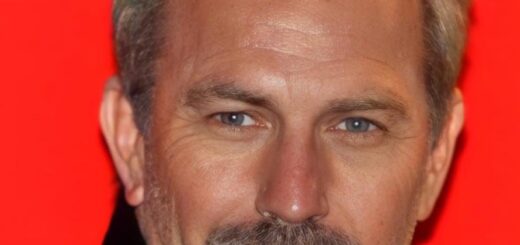Michael Douglas Leaves Behind A Fortune That Makes His Family Cry
Hollywood has always adored its illusions — the glow of fame, the weight of fortune, the beauty of applause. Yet behind those blinding lights often hides a quieter, lonelier truth.
Few embody that paradox more deeply than Michael Douglas — a man born into glory, shaped by solitude, and redeemed by love.
At 81, Douglas commands an empire worth over $350 million, but the true value of his legacy cannot be measured in numbers.
Every dollar carries a scar; every marble wall of his mansions echoes the price he paid — sleepless nights, fractured loves, a son lost to addiction, a voice nearly stolen by cancer. His wealth is not inheritance — it is the residue of survival.

Born the son of Kirk Douglas, one of cinema’s most enduring legends, Michael inherited fame before he earned his first line.
Yet rather than bask in his father’s shadow, he chose to build his own kingdom from the ruins of expectation. Kirk Douglas represented strength and iron discipline — a man revered by millions but distant to his own child.
Michael grew up yearning not for privilege, but for presence.
He once confessed, “My father was a concept, not a man you could hug.”
When his parents divorced in 1951, seven-year-old Michael began to understand the cruelty of silence. The family’s limousines and holiday homes could not fill the void of affection.
He called those years “the silence between the applause.” His stepfather, writer William Dared, became the first to show him unconditional love — attending his school plays not out of pride, but out of care.

It was this emotional vacancy that forged Douglas’s hunger to prove himself. He studied acting not because he dreamed of fame, but because, as he later said, “I didn’t know what else to do.” When his father bluntly told him he was “terrible,” the humiliation burned deep — yet it was that sting that pushed him beyond entitlement.
His first major break came with The Streets of San Francisco, where he finally earned his own paycheck — a modest $2,000 a week that meant more than any inheritance. But his defining moment arrived with One Flew Over the Cuckoo’s Nest (1975).
The rights had belonged to Kirk Douglas, who never managed to get the project made. Michael, then 31, resurrected it, fought for its production, and when the film swept the Oscars — including Best Picture — he had not only earned his first million but symbolically freed himself from his father’s shadow.

The triumph, however, came with a curse. Through the 1980s and 1990s, Michael Douglas became Hollywood’s personification of power and moral ambiguity — the face of temptation and greed.
Wall Street, Basic Instinct, Fatal Attraction — these roles made him a global icon, earning him over $15 million per film. Yet they also blurred the boundary between actor and character. “Sometimes,” he admitted, “I couldn’t tell where the role ended and I began.”
The success that made him untouchable also imprisoned him in the roles he played.
In private, his world was collapsing. His marriage to Diandra Luker, which had lasted over two decades, deteriorated into emptiness. Their $45 million divorce was one of the most public in Hollywood, but Douglas said the true loss was time — the years spent in silence.
Worse still, his son Cameron Douglas was spiraling into addiction. Growing up in luxury but deprived of presence, Cameron’s life became a mirror of his father’s emotional wounds.

When he was sentenced to seven years in federal prison in 2010, Michael faced the darkest reckoning of his life. “I failed as a father,” he said. Yet he did not walk away.
He wrote letters every week, attended hearings, and waited — not for forgiveness, but for redemption. When Cameron finally emerged free, their reunion was, in Michael’s words, “the most expensive form of love.”
The same year, Michael received another blow: stage 4 tongue cancer. For a man whose livelihood depended on his voice, the diagnosis was like a death sentence.
He lost nearly 40 pounds through seven weeks of brutal radiation and chemotherapy. His notes from that time read simply: “Still breathing.” Yet in the midst of suffering, he found a serenity he had never known before.
Catherine Zeta-Jones, his wife 25 years his junior, stayed by his side. When she later battled bipolar disorder, he returned the devotion. Their love — once a glamorous headline — evolved into a quiet covenant. “Love,” he reflected, “is not fireworks anymore. It’s the candle that stays lit even in a storm.”

Today, Douglas’s days are marked by discipline and gratitude. He meditates, swims, and walks by the sea.
Through the Douglas Foundation, he and his late father have donated over $120 million to education, health care, and the arts — including the restoration of more than 400 playgrounds in poor neighborhoods. His wealth now serves not vanity, but legacy.
When asked about his greatest achievement, Michael Douglas doesn’t mention his Oscars or his fortune. He simply says:
“Fame was what the world gave me. Peace is what I had to earn.”
And perhaps that is why his story moves even his own family to tears — not because of the empire he built, but because of the man he became after it all burned down.
Michael Douglas will be remembered not just as an actor, a producer, or the heir of a dynasty, but as a man who turned pain into grace. His life reminds us that endurance, forgiveness, and quiet love are worth more than gold.
In the end, as he once whispered to a journalist,
“True wealth isn’t what you keep. It’s what you survive — and still choose to love again.”


